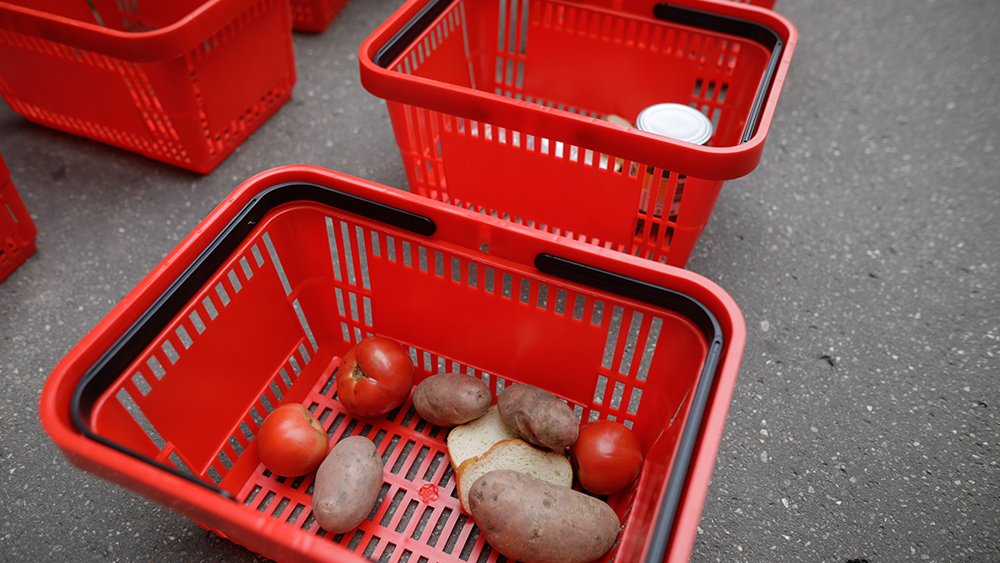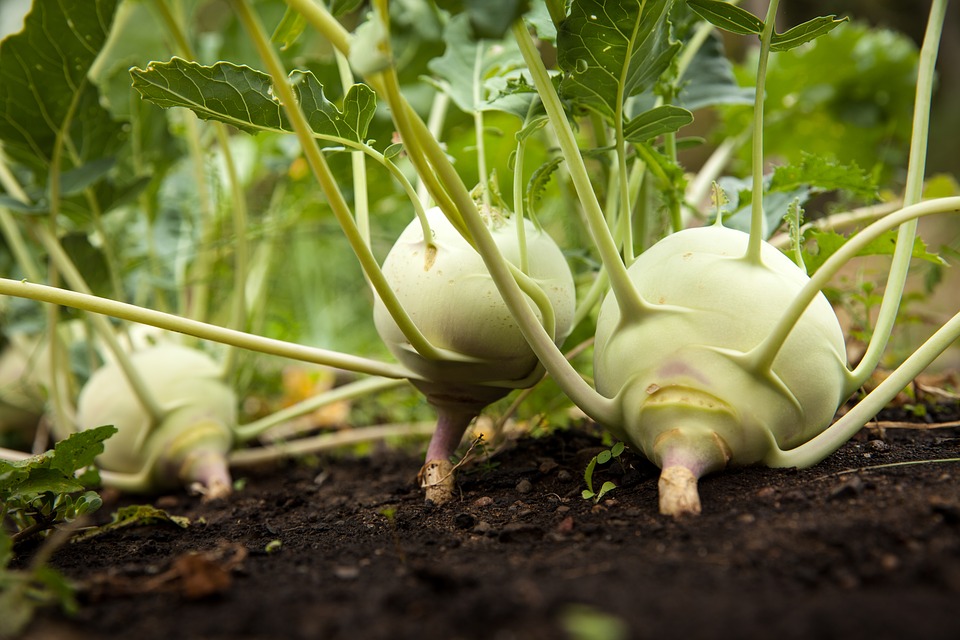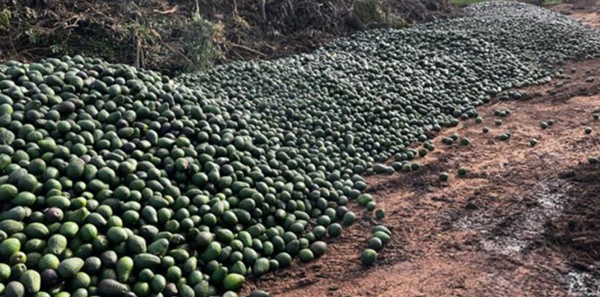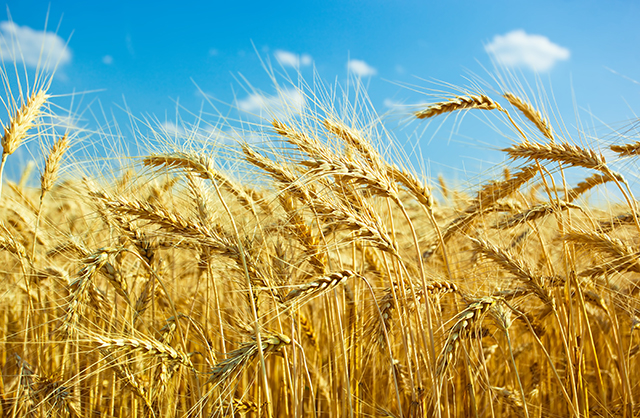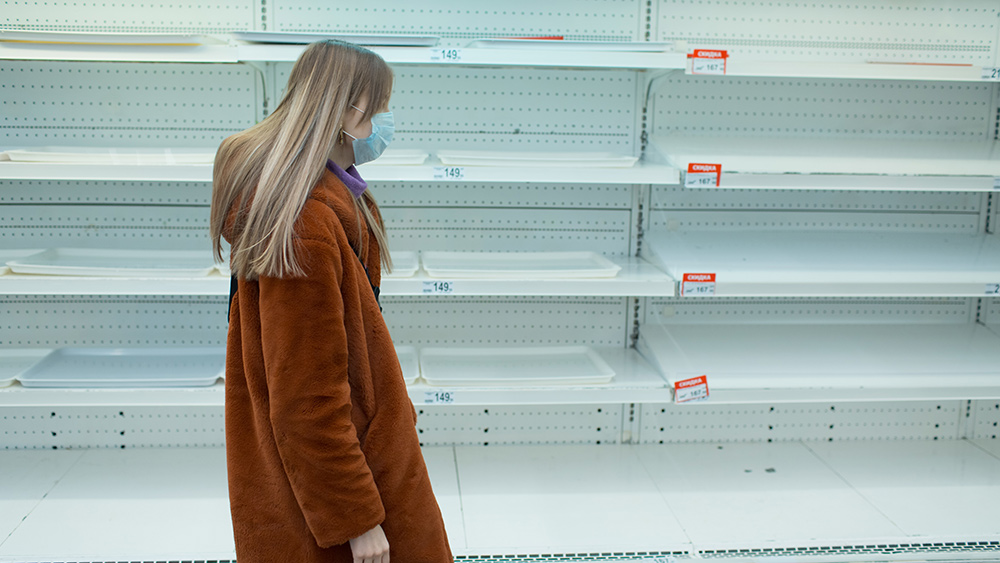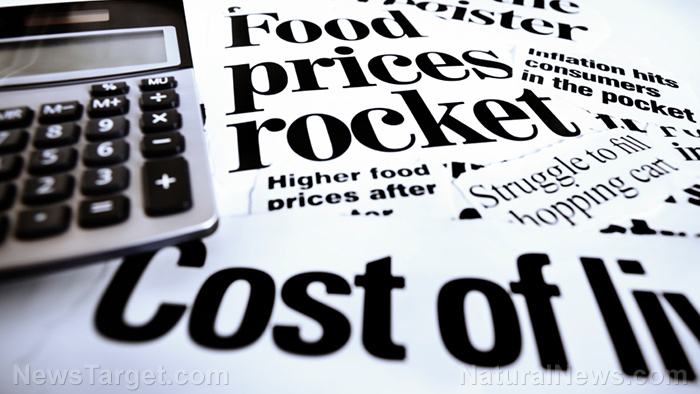UN says social unrest is coming as a consequence of “war-fueled” food inflation
05/18/2022 / By Ethan Huff
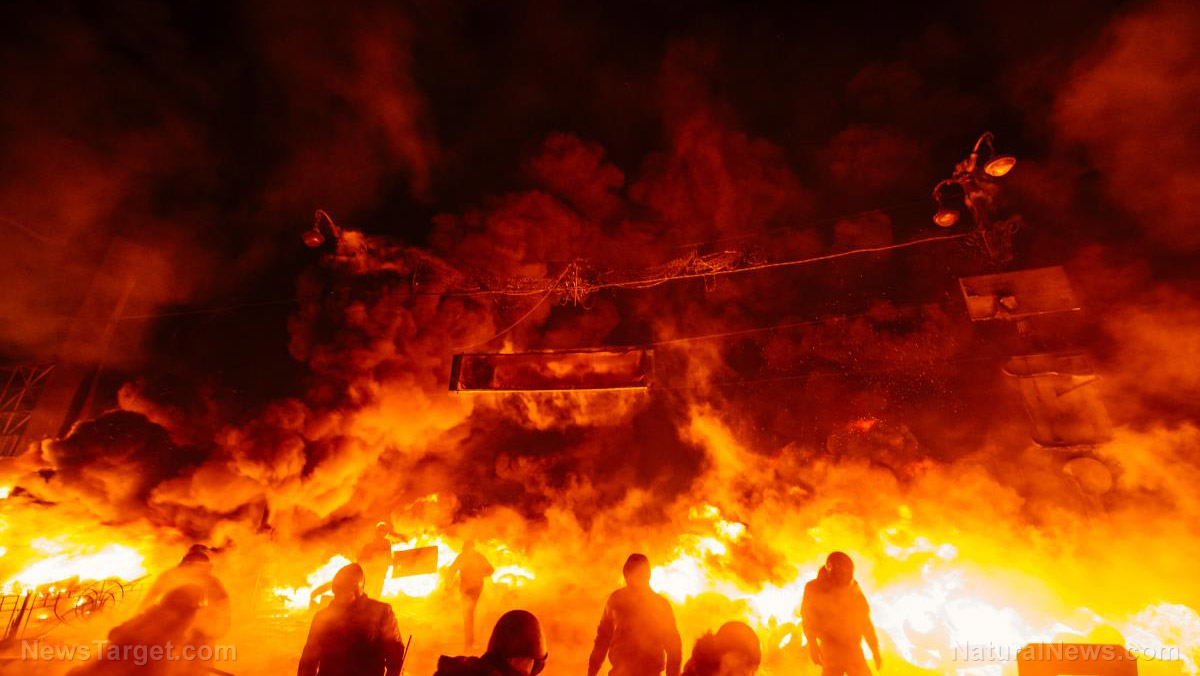
David Beasley, the current head of the United Nations World Food Programme, is warning that a perfect storm of global economic collapse is rapidly forming.
Extreme weather, war, the Wuhan coronavirus (Covid-19), and financial failure are all simultaneously setting the stage for a “war-fueled” crisis of biblical proportions.
“If people can’t feed their children and their families, then the politics unsettles,” Beasley told CNN during a recent conference. (Related: India, the world’s second-largest wheat exporter, just cut off all wheat exports.)
The UN itself is now having to ration its food supplies due to high prices and supply disruptions. This is causing millions of people who rely on this sustenance to suffer.
“If we’re not there with a safety net program, then the political extremists or whatever the case may be, will exploit that,” Beasley said, noting that many hungry children are suffering.
“Next thing you know, you’ve got riots, famine, destabilization and then mass migration by necessity.”
The biggest problem this year, according to Beasley, is food prices. Next year, it will morph into a food availability problem as supplies run dry due to various factors.
“In 2023, you’re going to have a food shortage problem,” Beasley says.
2022 will see the worst humanitarian crisis since WWII (and it’ll probably be much worse)
The entire world is feeling the pain of all this, but poorer countries are feeling it the worst. Beasley says that many African countries are already in a state of social unrest due to a lack of food or food becoming too expensive for families to afford.
“In the United States, some people might buy less Netflix, but you have enough money to buy the food you need,” he says. “It’s going to be tough on people, but nothing compared to Chad, Mali and Ethiopia.”
Americans on fixed incomes and others on the poorer end of the economic spectrum are also facing tough times at the grocery store as well as at the gas pump. If things are already this bad here, imagine how they are elsewhere?
“You can imagine what the heck is happening in places like Chad, Malawi, and DRC (Democratic Republic of Congo),” Beasley says.
The war in Syria and the Arab Spring uprising in 2011 were both preceded by food inflation and supply issues. However, conditions now are already much, much worse with no end in sight.
Back in January, the UN warned that 2022 would face a humanitarian crisis not seen since World War II. It is already shaping up to be much worse than that, possibly resulting in World War III.
The UN said this before Russia invaded Ukraine, by the way, which makes the situation even more precarious.
Global trade is currently in the process of shutting down, it would seem. And with Ukraine being the “breadbasket” of Europe, the food crisis is absolutely going to get worse as the year progresses.
Under normal circumstances, Ukraine grows enough food to feed about 400 million people. With exports now cut off, many will starve.
“That’s pretty much going to be out of the equation for many, many months,” Beasley says about Ukraine’s now-shuttered food exports.
Critical Black Sea ports are also now offline because of the conflict, which is physically preventing goods from traveling to where they need to be.
“It’s going to be so much worse than you think,” Beasley stated ominously during his speech.
Billionaires could help the situation if they were not so greedy, Beasley added.
“I just need two days of your net worth increase,” he says to the upper crust. “Is that too much to ask?”
More related news coverage can be found at FoodCollapse.com.
Sources for this article include:
Submit a correction >>
Tagged Under:
chaos, collapse, crisis, famine, food collapse, food exports, food inflation, food rationing, food shortage, food supply, hunger, panic, products, riots, Russia, scarcity, SHTF, social unrest, starvation, supply chain, Ukraine, United Nations, World War III
This article may contain statements that reflect the opinion of the author
RECENT NEWS & ARTICLES
COPYRIGHT © 2022 FoodPolice.news
All content posted on this site is protected under Free Speech. FoodPolice.news is not responsible for content written by contributing authors. The information on this site is provided for educational and entertainment purposes only. It is not intended as a substitute for professional advice of any kind. FoodPolice.news assumes no responsibility for the use or misuse of this material. All trademarks, registered trademarks and service marks mentioned on this site are the property of their respective owners.






